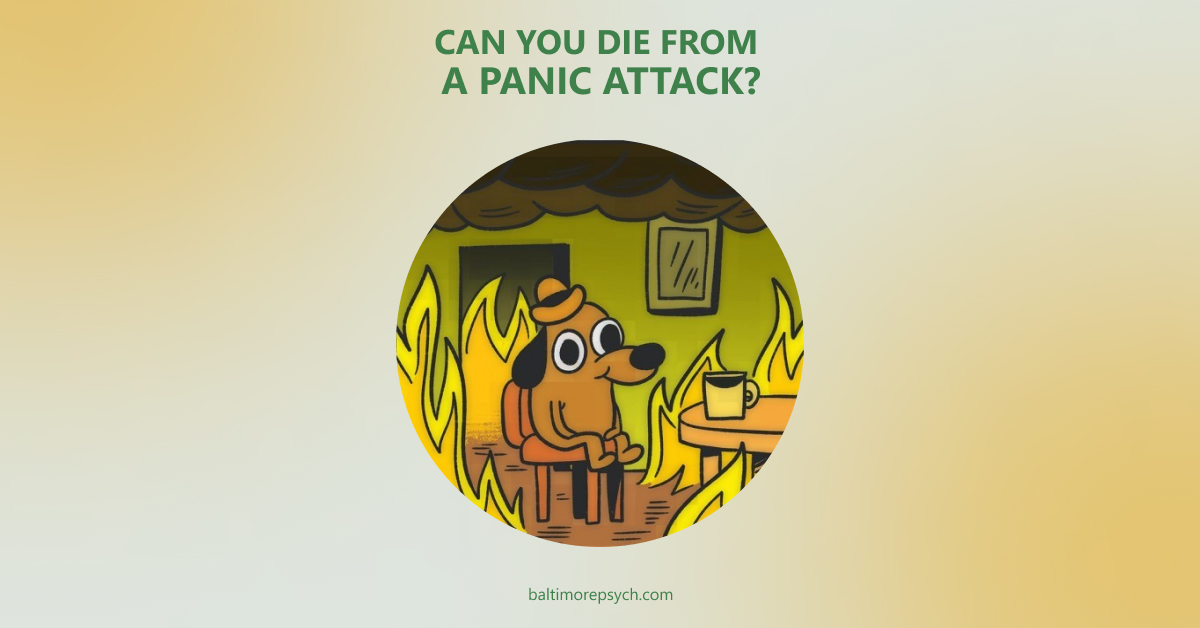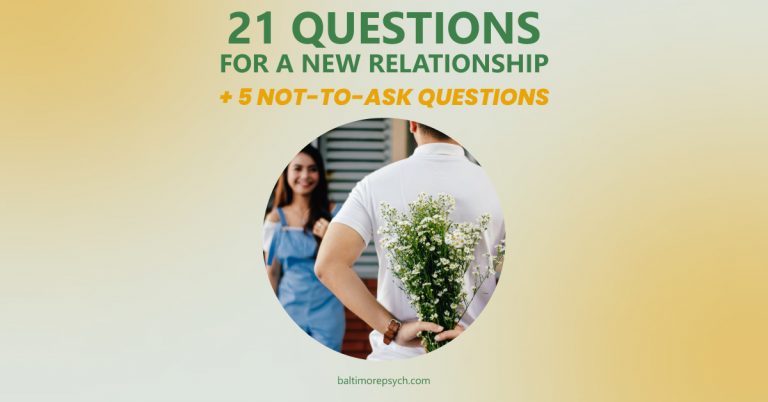Panic attack nature: why does panic even attack me?
Stress and anxiety can be a part of everyday life for many, so it’s no surprise that panic attacks are a very real discomfort. But the truth is, not many people truly understand what a panic attack feels like physically or even contemplate the question “can you die from one?”. Fortunately, modern healthcare professionals have begun to gain insight into why these events occur. From physical factors to psychological triggers, understanding the nature of panic attacks aids us in preparing for them as well as managing their symptoms.
A panic attack is an intense episode of fear or anxiety equating to a “sense of impending doom” that can cause physical symptoms such as racing heart, sweating, and nausea. It is likely accompanied by a feeling of overwhelming dread and this episode typically resolves within several minutes.
These attacks are often extremely distressing with people worrying “why does panic even attack me?” The answer lies in our body’s natural “fight or flight response”. This response is triggered when our limbic system perceives danger – real or perceived – which sends signals through our body, flooding it with stress hormones and preparing us for action.
What does a panic attack feel like physically?
The physical symptoms associated with a panic attack vary from person to person but often include rapid heart rate, chest pain, shortness of breath, chills or hot flushes, trembling and excessive sweating.
Panic attacks can be extremely distressing experiences and can be accompanied by a variety of intense physical sensations. The physical symptoms associated with a panic attack vary from person to person. An individual may experience chest tightness, increased heart rate, shortness of breath, sweating, trembling or shaking, numbness or tingling sensations in the limbs, dizziness or lightheadedness, and/or hot or cold flashes. It is also common for people to feel as if they are losing control, going “crazy”, or about to pass out during this time.
How long do panic attacks normally last?
Typically panic attacks last from a few minutes up to half an hour; however it is possible for them to last longer in some cases. People who suffer from panic attacks should consult their doctor to learn how best to manage these episodes so that they don’t interfere with everyday life.
Panic Attack symptoms vs. Anxiety Attack
Do you ever find yourself wondering “are anxiety attacks and panic attacks the same thing?” The answer is both “yes” and “no”. While the terms are often used interchangeably to describe a person’s reactions to stress or other emotion triggers, there can be some important differences in the symptoms of a panic attack versus an anxiety attack.
Panic attacks typically cause an intense physical reaction like increased heart rate and shortness of breath while anxiety attacks are associated with obsessive thoughts or general feelings of fear or unease that can come and go processing mental requests.
Anxiety and panic attacks can often have similar symptoms, but they have different origins and, thus, require different approaches to treatment. Anxiety attacks, which typically arise out of a stressed or fearful situation, or emotional flooding, and often last around 10 minutes to half an hour, may present as rapid heart rate, dizziness, and nausea. A person may experience this in conjunction with intrusive thinking which further adds to the feeling of agitation.
On the other hand, a panic attack is generally provoked by an underlying fear or phobia and causes sudden overwhelming feelings of terror that can last up to an hour. These are distinct from anxiety in that they also involve chest tightness, shortness of breath, and trembling. The main difference between these two conditions is their level of intensity; whilst an anxiety attack is more of an inconvenient disruption in daily life, a panic attack is characterized by intense fear accompanied by physical symptoms.
Both types of “attacks” can lead to chest pain, shaking, hot flashes, dizziness, sweating, and numbness; but being aware of the difference between them can provide useful information when managing symptoms.
Can you die from a panic attack?
While very uncomfortable to experience, no – you cannot die from an isolated panic attack. It’s important to seek timely medical help if you feel overwhelmed by the severity of your symptoms so they can be addressed appropriately and provide support in managing the condition going forward.
While it is not possible to “die” of a panic attack itself, anxiety and panic attacks can lead to physical symptoms that are serious enough to cause death. For example, some individuals who experience chest pain during panic attacks can mistake the discomfort as a sign of a heart attack.
In fact, “can anxiety and panic attacks cause chest pain?” is one of the most common questions people have about this condition. Without proper medical evaluation, it is difficult to differentiate between chest pain from an underlying heart condition and that caused by a panic attack. If left unchecked, this misconception can be dangerous since the true culprit may not be adequately addressed leading to life-threatening conditions.
Can you die from a weed panic attack?
Many people take in marijuana for recreational or medicinal purposes, but it remains an unpredictable substance as a result of its psychoactive effects. A “weed panic attack” is an extreme reaction, typically marked by extreme fear and anxiety, that some users may experience after taking in too much marijuana. Though it can be an uncomfortable and alarming feeling, it is not fatal.
Unfortunately, a person may feel “trapped,” perpetuating the panic attack through their own personal psychology; however, with the right guidance and understanding of its nature, the user should eventually be able to recover. Practical tips for managing a weed-induced panic attack include taking deep breaths and counting to ten, and engaging in distraction techniques such as watching an enjoyable movie or listening to music.
How to prevent panic & anxiety attacks from consequences for health and well-being?
Panic and anxiety can be debilitating and can have a huge impact on an individual’s physical, psychological and social well-being if left unchecked. But, with the right strategies in place, it may be possible to prevent these attacks from occurring in the first place.
Can Too Much Stress Kill You? No, but it can worsen your life quality. There are five practical tips for you to help manage panic and anxiety:
- Deep breathing
Deep breathing can naturally decrease your heart rate and encourage relaxation. - Seeking out counseling and support groups
Seeking counseling can assist you in recognizing potential triggers and navigating challenging situations in more positive ways. - Getting adequate rest through regular sleep habits
And finally, ensuring regular sleep patterns can help boost your overall physical health, moods, and focus. Taking the initiative to prevent panic attacks can promote long-term health. - Abstaining from drugs
If it’s possible and it’s not a component of your medication, it’s better to abstain from substances in order not to provoke anxiety or panic. - Regular exercises
Whether that’s running outdoors or joining an exercise class – it can increase your overall sense of well-being and reduce stress caused by everyday life.




